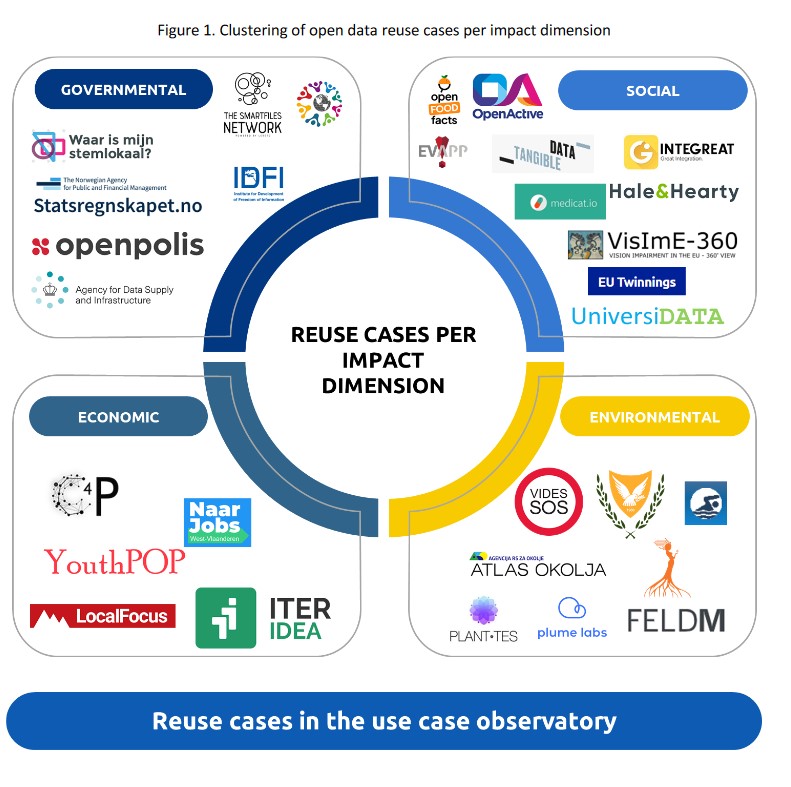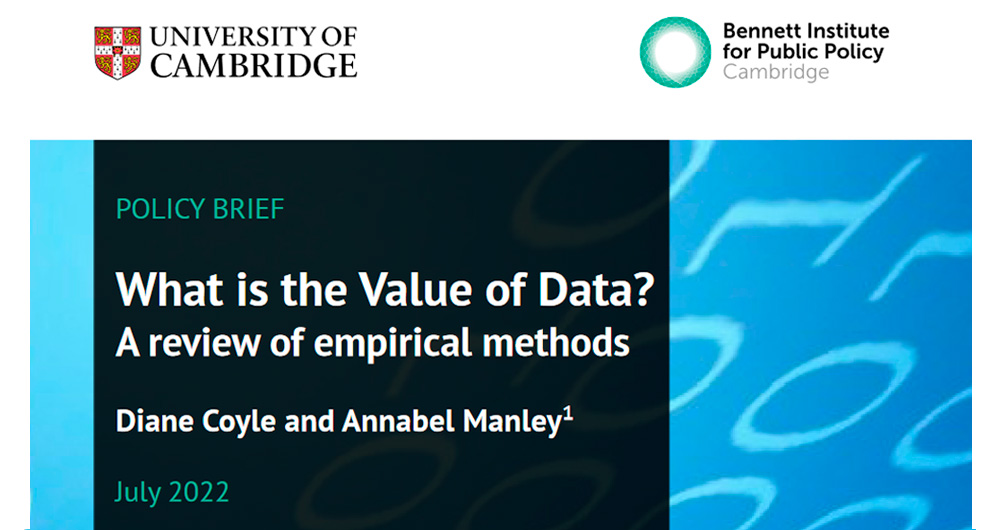Use Case Observatory, a European Open Data Portal initiative to measure the impact of open data
Fecha de la noticia: 07-12-2022

Measuring the impact of open data is one of the challenges facing open data initiatives. Ther are a variety of methods, most of which combine quantitative and qualitative analysis in order to understand the value of specific datasets.
In this context, data.europa.eu, the European Open Data Portal, has launched a Use Case Observatory. This is a research project on the economic, governmental, social and environmental impact of open data.
What is the Use Case Observatory?
For three years, from 2022 to 2025, the European Data Portal will monitor 30 cases of re-use of open data. The aim is to:
- Assess how the impact of open data is created.
- Share the challenges and achievements of the analysed re-use cases
- Contribute to the debate on the methodology to be used to measure such impact.
The analysed use cases refer to four areas of impact:
- Economic impact: includes reuse cases related to business creation and (re)training of workers, among others. For example, solutions that help identify public tenders or apply for jobs are included.
- Governmental impact: This refers to reuse cases that drive e-government, transparency and accountability.
- Social impact: includes cases of re-use in the fields of healthcare, welfare and tackling inequality.
- Environmental impact: This is limited to cases of re-use that promote sustainability and energy reduction, including solutions related to air quality control or forest preservation.
To select the use cases, an inventory was made based on three sources: the examples collected in the maturity studies carried out each year by the European portal, the solutions participating in the EU Datathon and the examples of reuse available in the repository of use cases on data.europa.eu. Only projects developed in Europe were taken into account, trying to maintain a balance between the different countries. In addition, projects that had won an award or were aligned with the European Commission's priorities for 2019 to 2024 were highlighted. To finalise the selection process, data.europa.eu conducted interviews with representatives of the use cases that met the requirements and were interested in participating in the project.
Three Spanish projects among the use cases analysed
The selected use cases are shown in the following image:

Among them, there are three Spaniards:
- In the Social Impact category is UniversiDATA-Lab, a public portal for the advanced and automatic analysis of datasets published by universities. This project, which won the first prize in the III Desafío Aporta, was conceived by the team that created UniversiData, a collaborative initiative oriented and driven by public universities with the aim of promoting open data in the higher education sector in Spain in a harmonised way. You can learn more about these projects in this interview.
- In the same category we also find Tangible data, a project focused on the creation of sculptures based on data, to bring them closer to non-technical people. Among other data sources, it uses datasets from NASA or Our World in Data.
- In the environment category is Planttes. This is a citizen science project designed to report on the presence of allergenic plants in our environment and the level of allergy risk depending on their condition. This project is promoted by the Aerobiological Information Point (PIA) of the Institute of Environmental Science and Technology (ICTA-UAB) and the Department of Animal Biology, Plant Biology and Ecology (BABVE), in collaboration with the Computer Vision Centre (CVC) and the Library Living Lab, all of them at the Autonomous University of Barcelona (UAB).
First report now available
As a result of the analysis carried out, three reports will be developed. The first report, which has just been published, presents the methodology and the 30 selected cases of re-use. It includes information on the services they offer, the (open) data they use and their impact at the time of writing. The report ends with a summary of the general conclusions and lessons learned from this first part of the research project, giving an overview of the next steps of the observatory.
The second and third reports, to be released in 2024 and 2025, will assess the progress of the same use cases and expand on the findings of this first volume. The reports will focus on identifying achievements and challenges over a three-year period, allowing concrete ideas to be extrapolated to improve methodologies for assessing the impact of open data.
The project was presented in a webinar on 7 October, a recording of which is available, together with the presentation used. Representatives from 4 of the use cases were invited to participate in the webinar: Openpolis, Integreat, ANP, and OpenFoodFacts.














